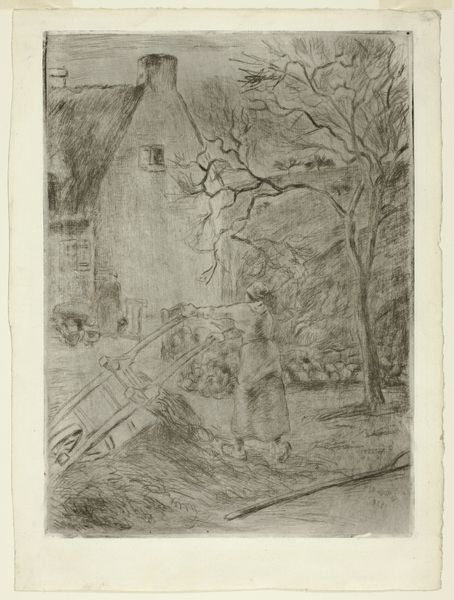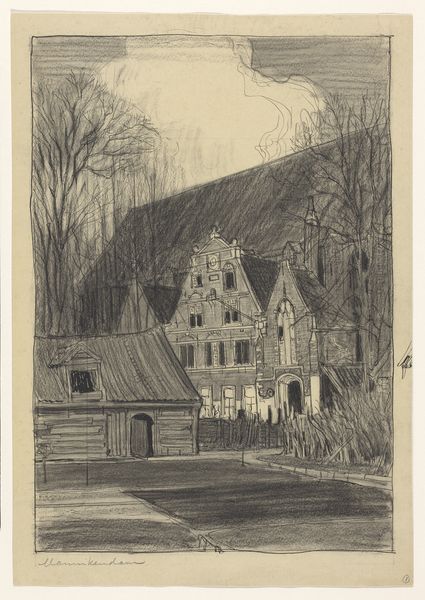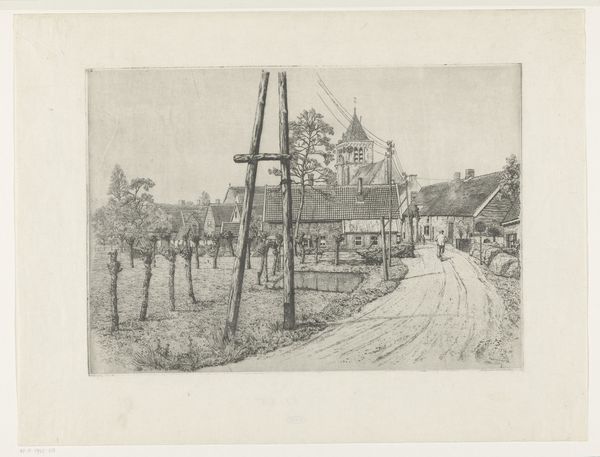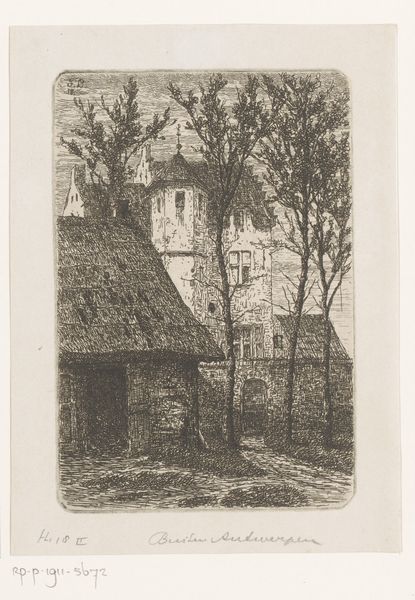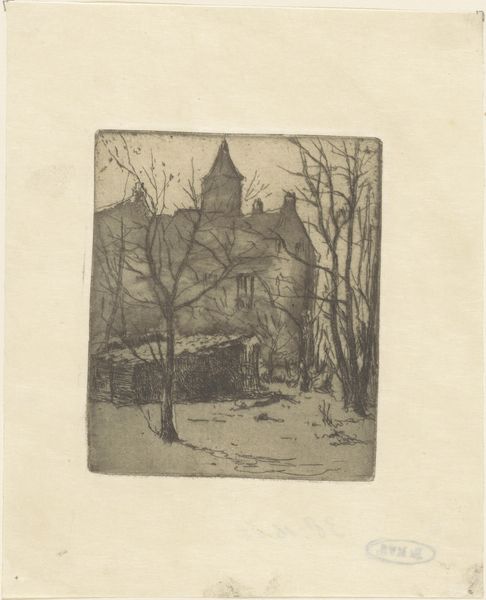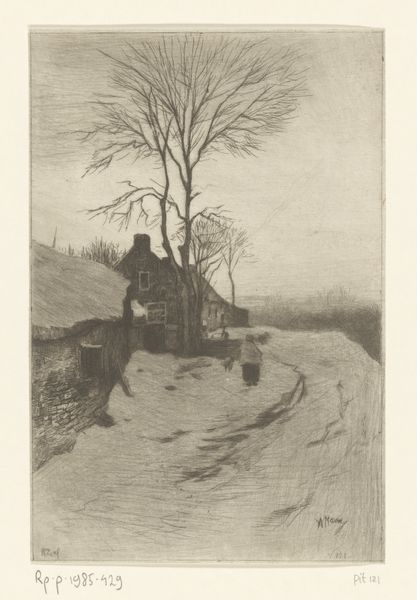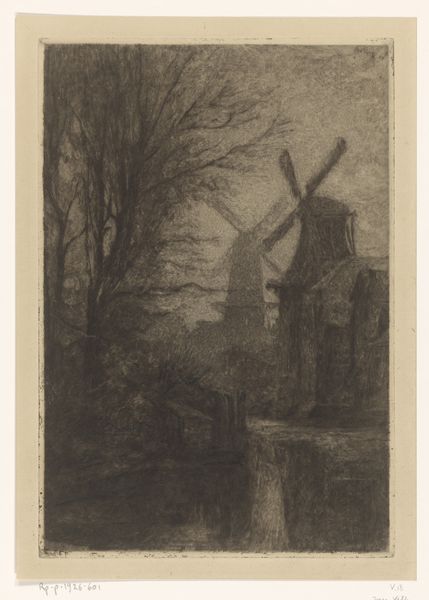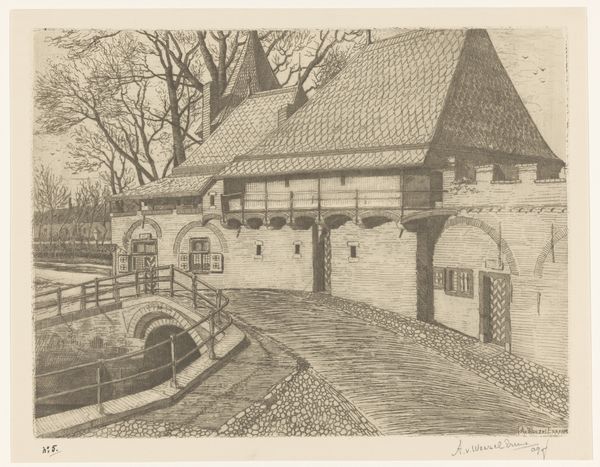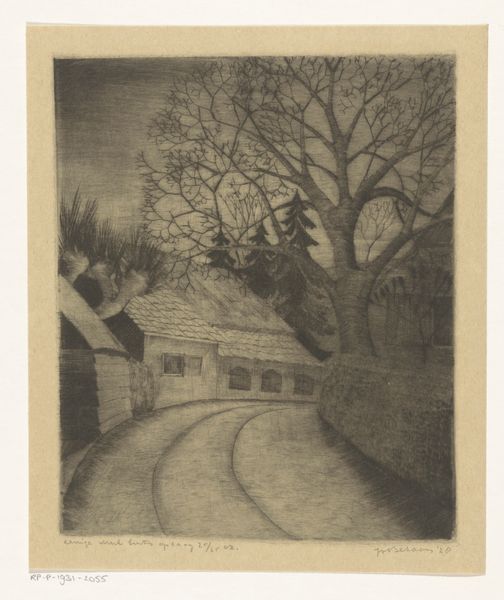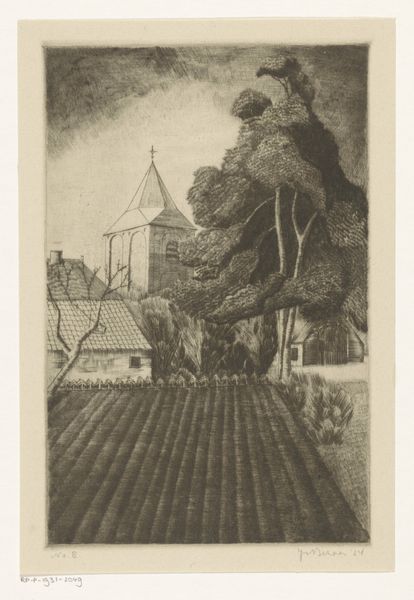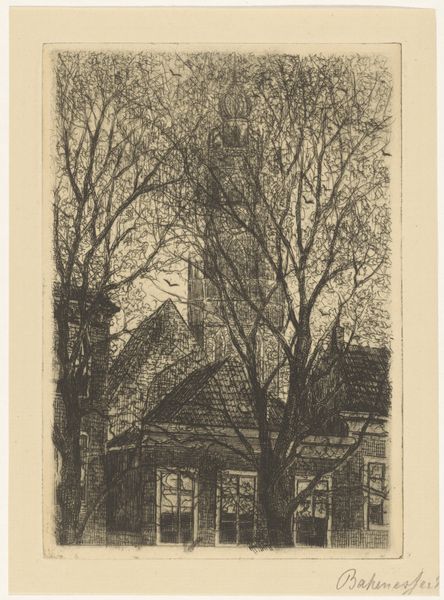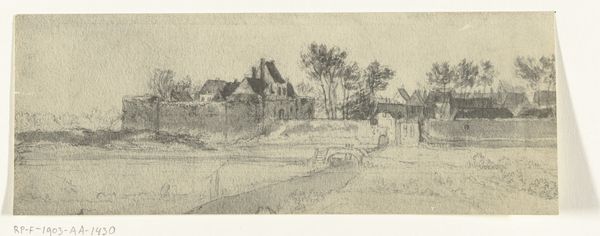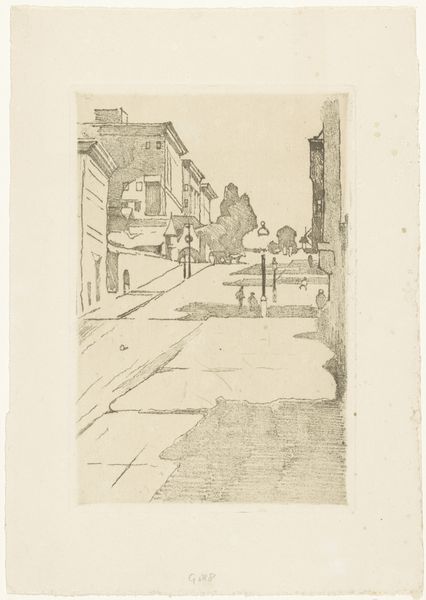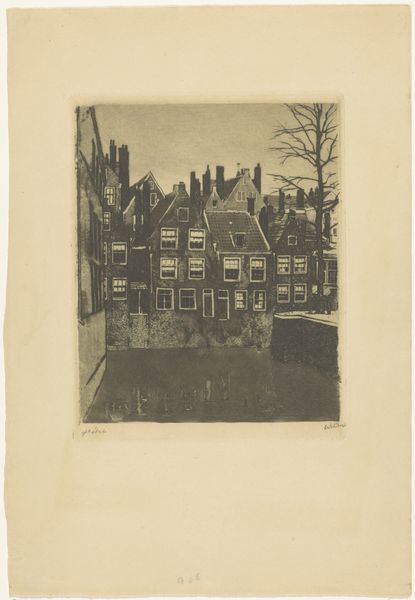
drawing, graphite
#
drawing
#
landscape
#
etching
#
graphite
#
northern-renaissance
#
realism
Dimensions: height 335 mm, width 282 mm
Copyright: Rijks Museum: Open Domain
Editor: So, here we have Jan Mankes’s “Ouderlijk huis in de Knijpe,” made before 1914, in graphite. The soft lines create a sense of quiet stillness, almost melancholic. What do you see in this piece? Curator: It's interesting that you pick up on the stillness. Consider the date – pre-World War I. This image resonates with a deep sense of place, the home, the familial. But even then, anxieties about rural life, industrialization, and impending conflict permeated society. Do you think Mankes' choice of graphite might contribute to this mood? Editor: That’s a good point. The fragility of graphite mirrors the vulnerability of the time, perhaps? The way the figure, presumably a woman, is almost fading into the scene... Curator: Exactly. We can consider how gender roles confined women to the domestic sphere, particularly in rural settings. The drawing, then, becomes not just a landscape, but a comment on social structures. It’s about labor, about belonging, but also perhaps, about confinement. Do you think the composition draws our attention to that confinement? Editor: The fence lines on the right, leading nowhere, definitely emphasize that feeling of being boxed in. It’s subtle, but it's there. I hadn't initially thought about it that way. Curator: Precisely. Mankes prompts us to consider how art acts as a mirror, reflecting and challenging the societal norms of its time. It encourages us to see through the surface, to the social and political currents flowing beneath. Editor: This has completely changed how I see the piece; I’ll definitely keep those historical contexts in mind as I’m walking through the museum! Curator: Wonderful! I'm glad we could unearth some of the quiet, yet powerful, undercurrents present within this seemingly simple drawing.
Comments
No comments
Be the first to comment and join the conversation on the ultimate creative platform.
